Submitted by WA Contents
Powerhouse Company revitalizes Rotterdam's post-war church with "inviting and comfortable spaces"
Netherlands Architecture News - Sep 13, 2024 - 14:25 6708 views
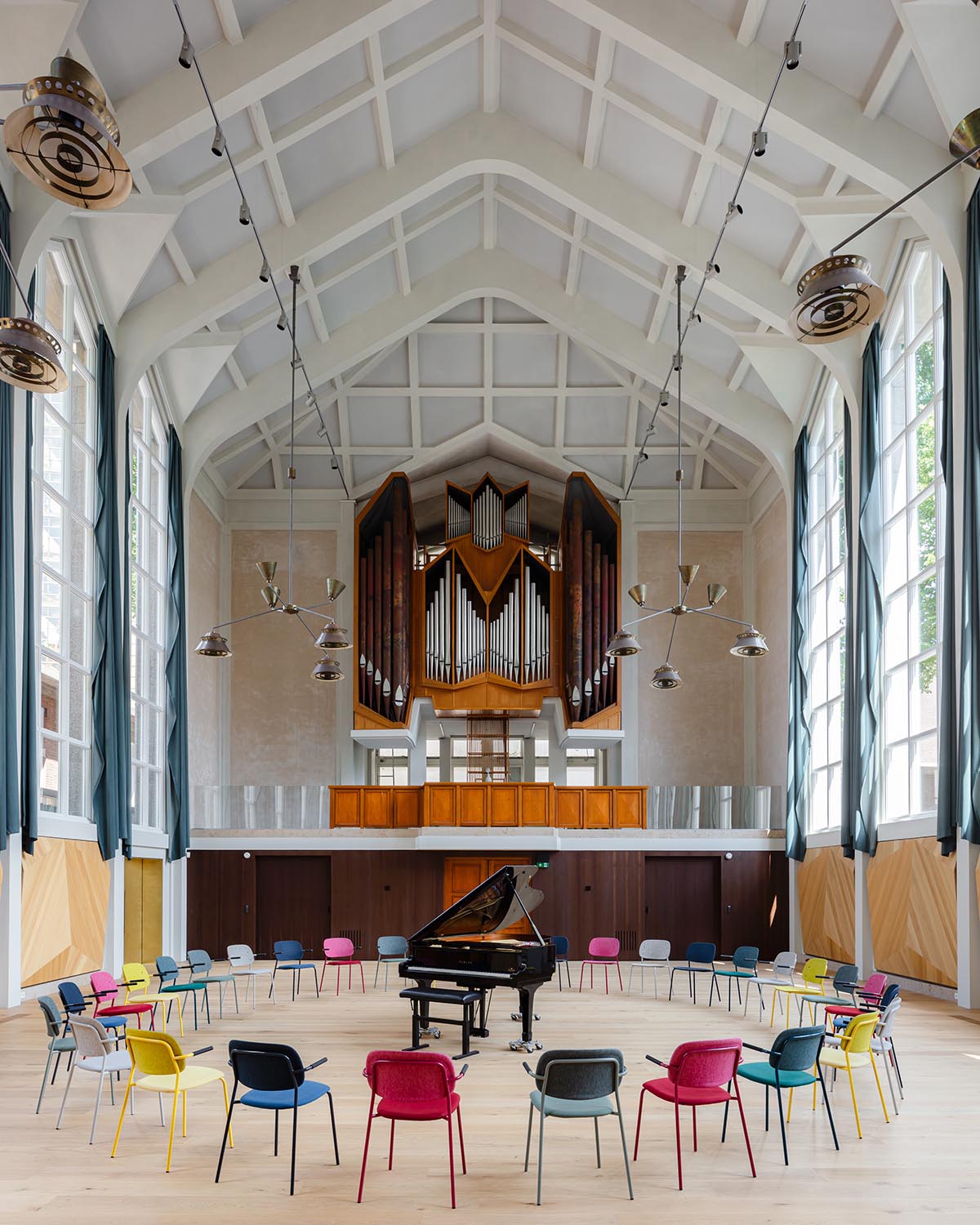
Rotterdam-based architecture practice Powerhouse Company has completed the transformation of a post-war church into a music hub in Rotterdam, the Netherlands.
Named Muziekwerf, the 930-square-meter building, appointed by the philanthropic foundation Droom en Daad, was converted from a 1951-built church into a vibrant space for youth orchestras, pop choirs, and other musical talents.
Situated behind the bustling Hofplein, it is the first permanent youth-focused rehearsal and performance space in the Netherlands.
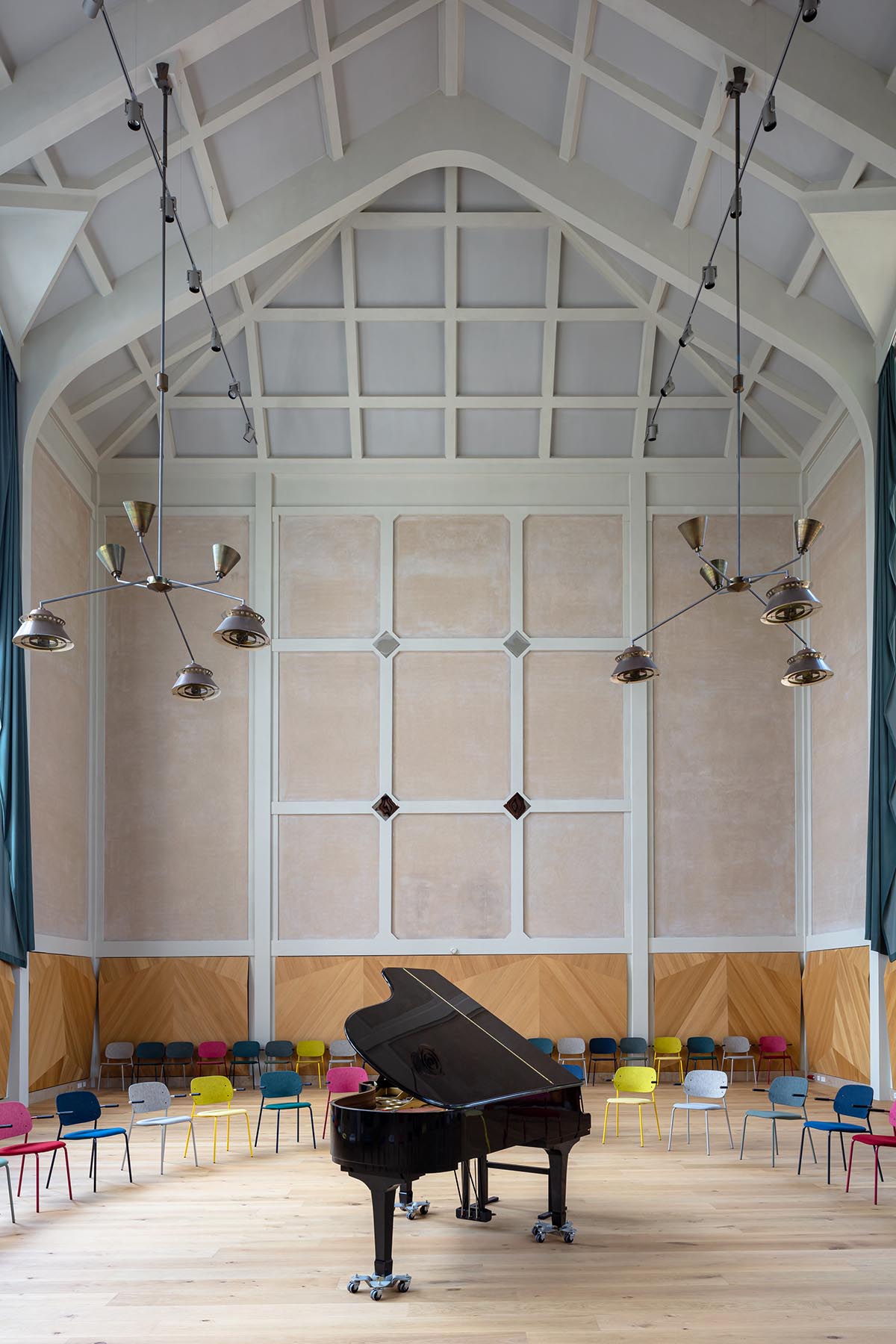
Main music hall
Preserving Heritage, Inspiring the Future
Committed to conserving Rotterdam's cultural legacy, Droom en Daad commissioned Powerhouse Company to revive this wartime treasure and constructing a cutting-edge space for upcoming musical generations. It is the first permanent youth-focused rehearsal and performance space in the Netherlands.
The Mennonite church was historically significant when it was built in 1951, and Powerhouse Company honored this by keeping important elements, such as the famous Flentrop organ from 1954. This instrument provides concerts and young musicians with exceptional opportunities.
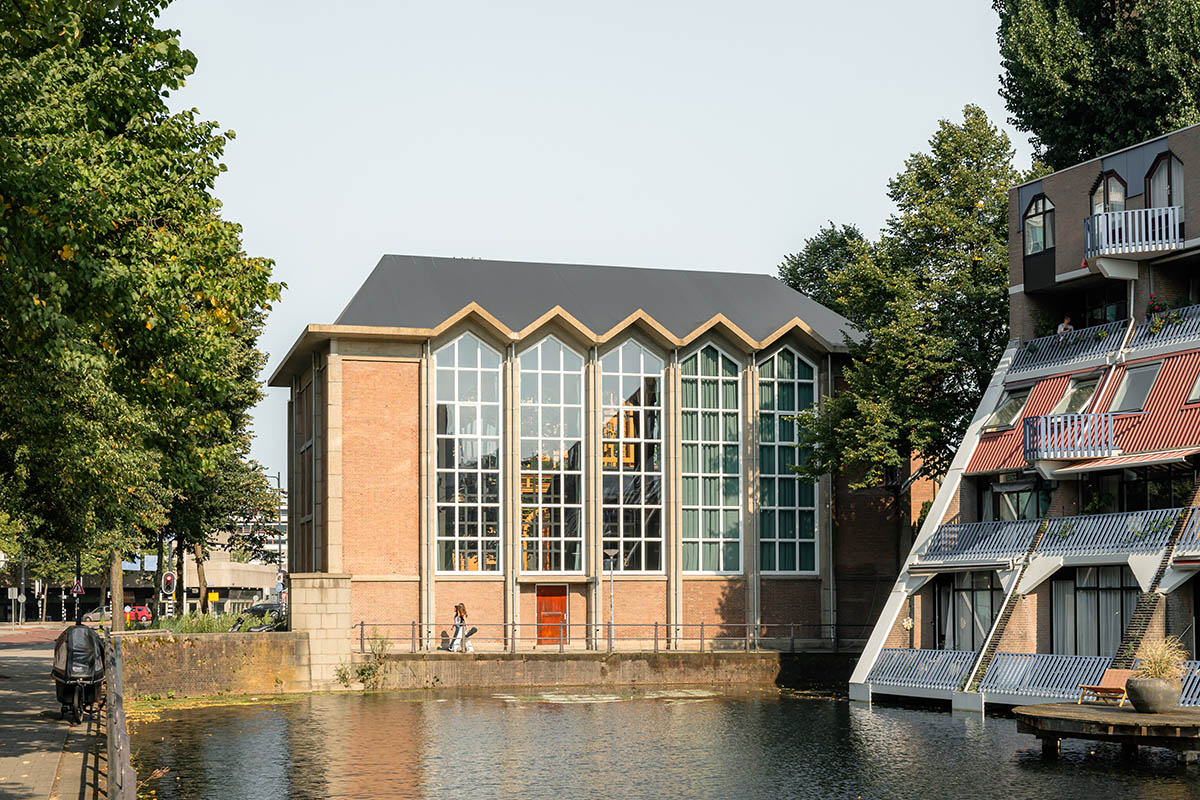
At the end of Delftsevaart water
The original plastered concrete cassette ceiling serves as the basis for the new music hall, while the redesign emphasizes expressive elements like large chandeliers that light the former church hall.
"Our goal was to transform this imposing concrete structure into an inviting and comfortable space for its new users, making this post-war gem shine again," said Nanne de Ru, Founder, Powerhouse Company.
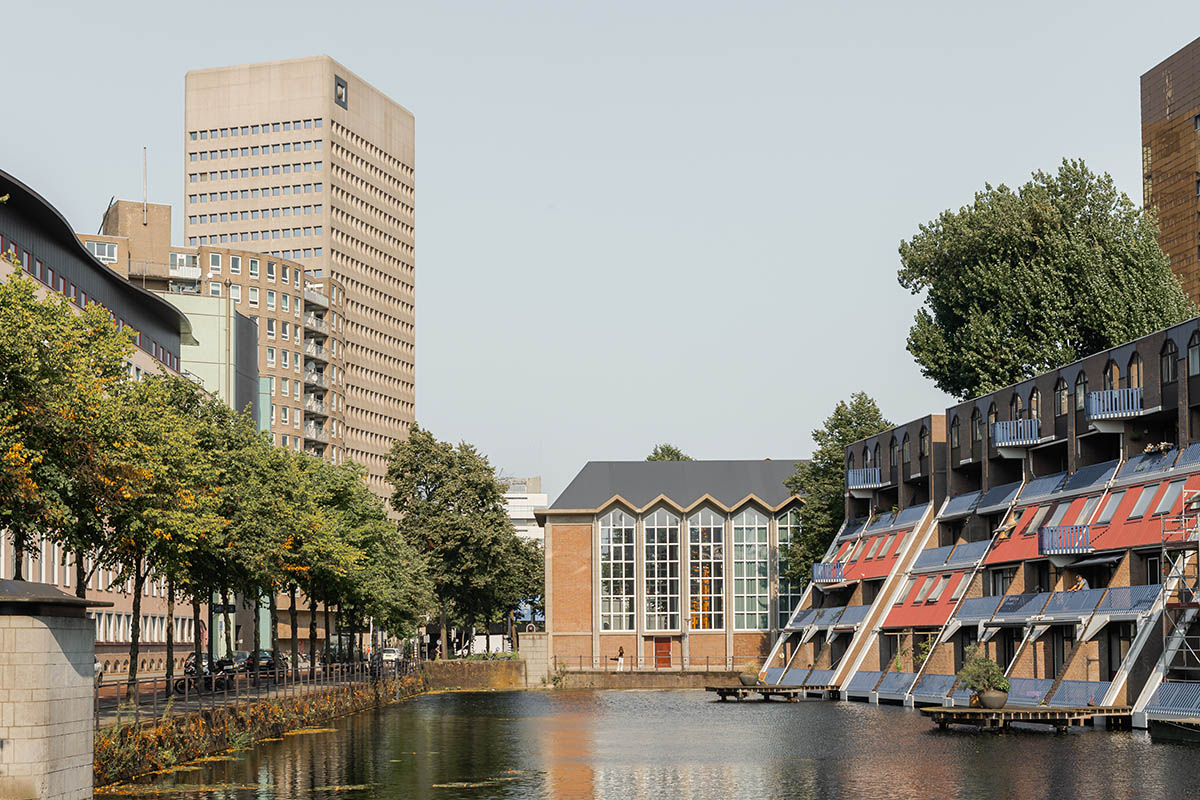
Nestled amidst tall buildings
Circular Design Interventions
During the transition, Powerhouse Company used a circular strategy that prioritized sustainable and ethical preservation.
Slate floor tiles from the church hall were repurposed for the entrance and baseboards, and original church pews were turned into seating and paneling in the foyer. To preserve the history of the building, the wooden window frames were meticulously restored rather than replaced.
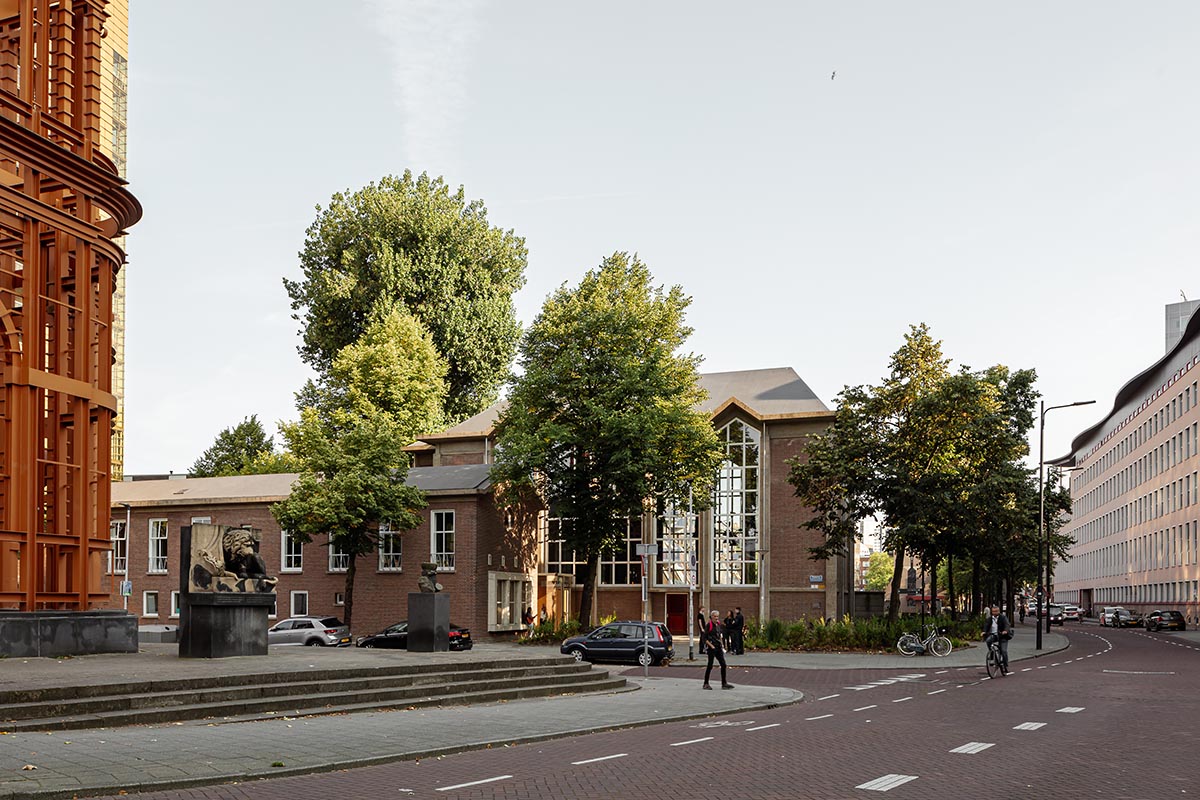
Behind Hofplein
Sustainable materials were prioritized by the design team and the client in tandem. The vibrant chairs were made from recycled PET bottles, and the Bakelite door hardware and lamps were restored to their original beauty.
The building's restored original tiling is complemented by new ton-sur-ton tiles, and additional environmentally friendly elements include recyclable PVC roofing and climate-positive marmoleum flooring.
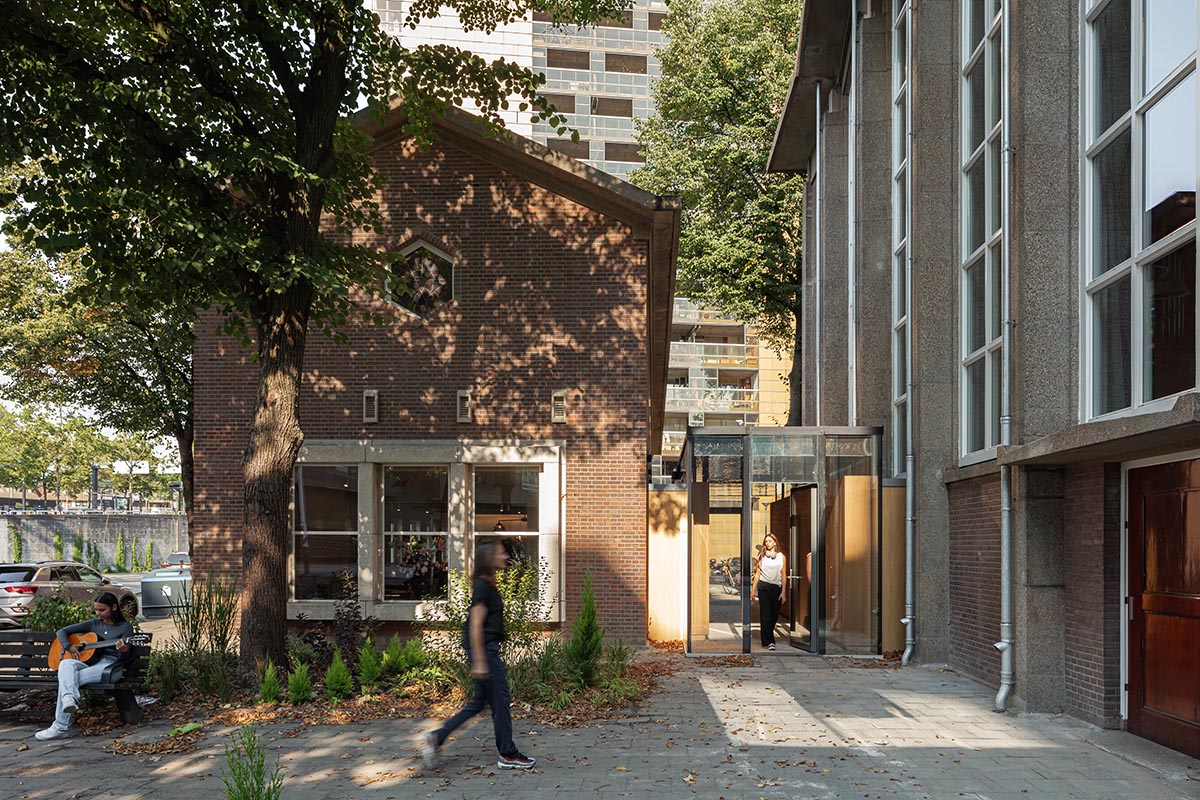
New entrance
Innovative design for an inviting space
Since no two rooms at Muziekwerf are alike, every area was created from scratch. This necessitated a customized strategy, which included cutting-edge acoustic treatments to control noise inside the concrete building.
The end effect is a tasteful fusion of the old and the new, with subtle color schemes and unpolished concrete textures that highlight the building's complex past. Plaster clouds, concrete window frames, and original tiles combine with elements inspired by the 1950s to create a space that embodies the merging of the past and present.
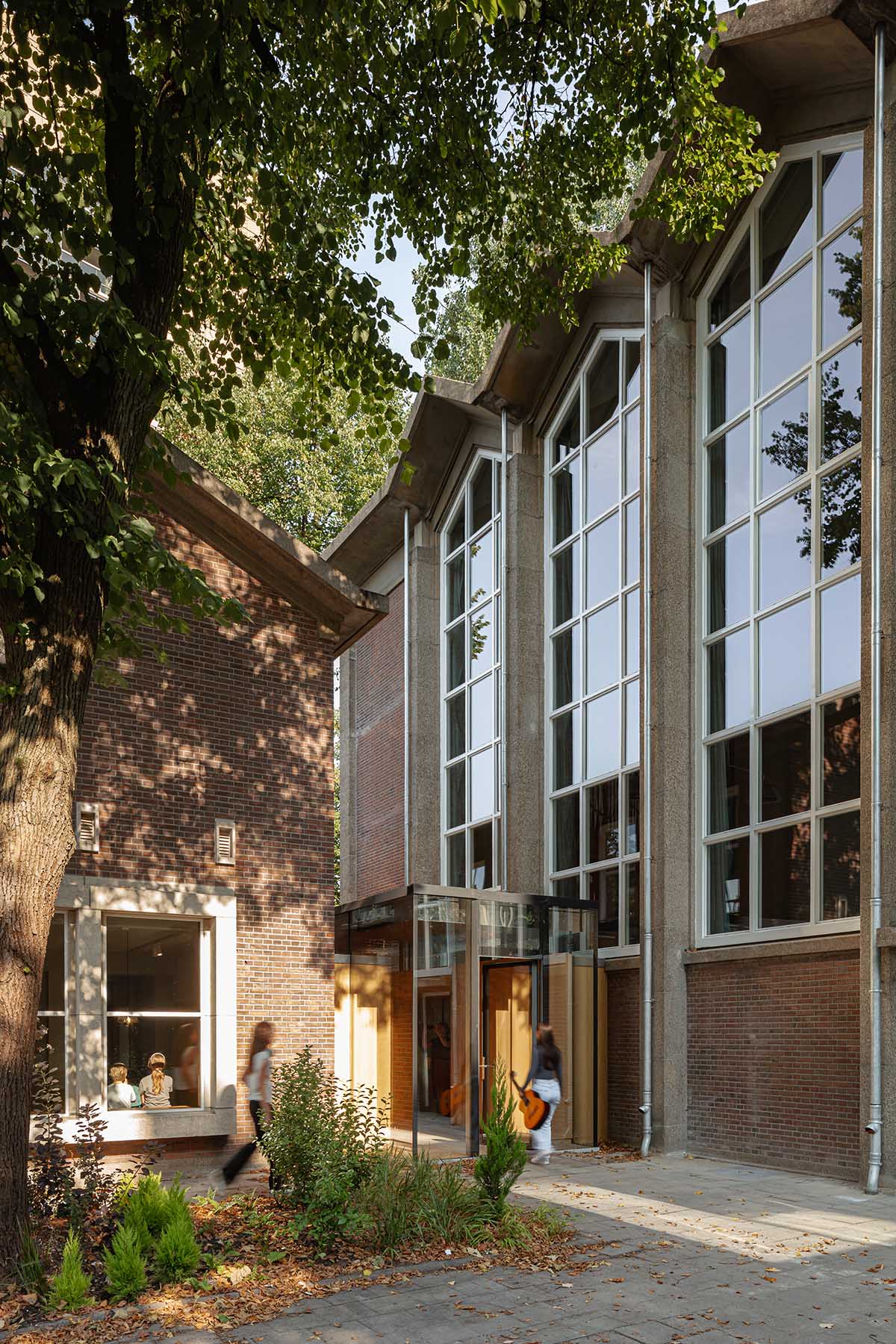
New entrance
The music studios were equipped with underfloor heating for added comfort, which also served as a link to the outside by removing the radiators in front of the windows.
While a muted color scheme in the new music hall, rehearsal studios, and piano studio ensures a modern but respectful homage to the building's historical essence, ceiling radiant panels in larger spaces kept the concrete trusses visible.
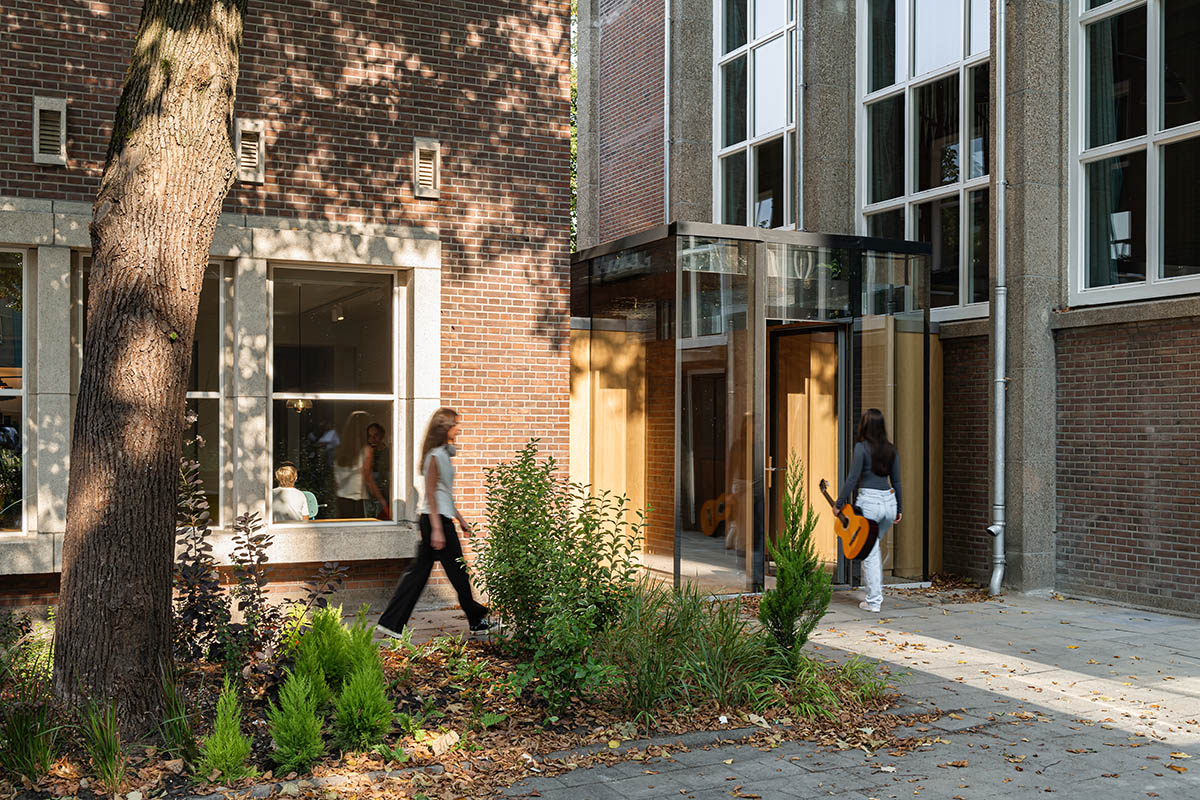
New entrance
The upper parts of the post-war building are illuminated by natural light thanks to light-mirroring glass on the balcony and blue velvet curtains that maximize natural light. The music hall was once filled with church benches, but light oak floors and sound-absorbing panels create a warm, welcoming atmosphere that nods subtly to those seats.
"Our design ensures a clear and fresh interior that creates a comfortable and inspiring environment. As music fills the air, Muziekwerf truly comes to life," said Franca Houg, Architect, Powerhouse Company.
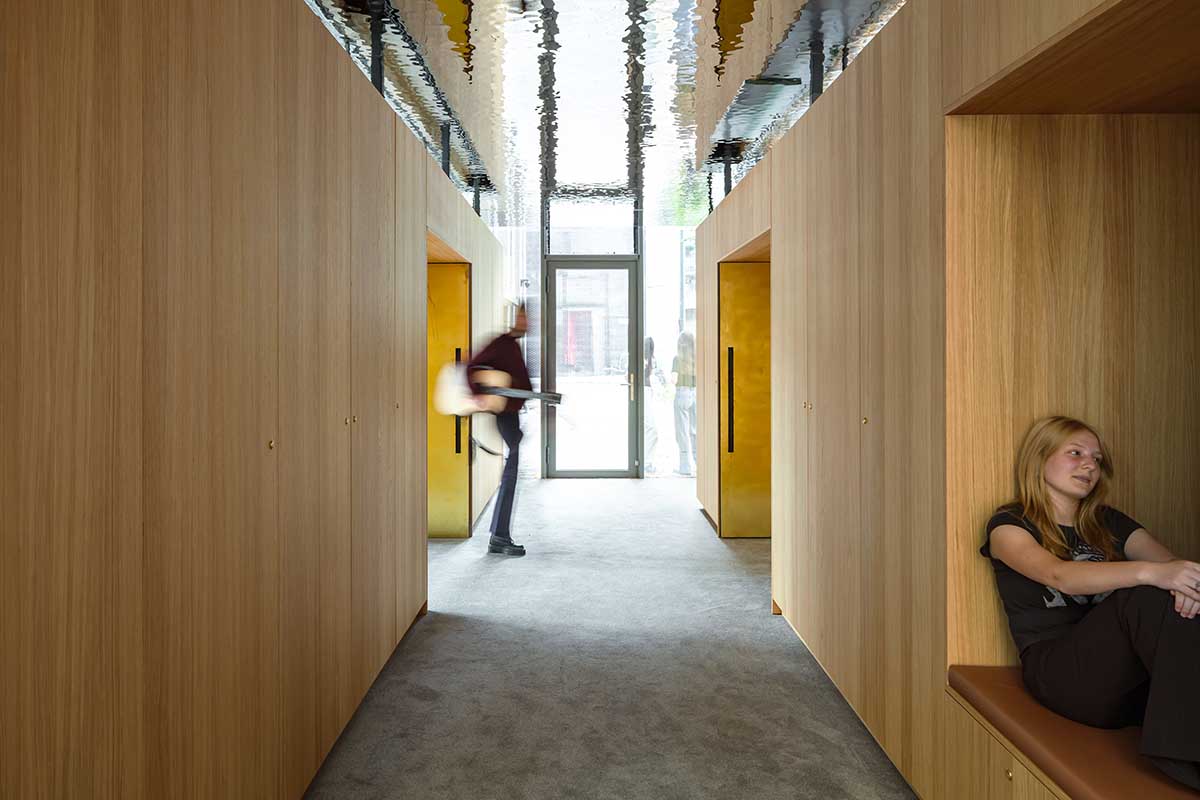
The new intermediate structure
A Space for Culture
Tucked away from the busy city center, Muziekwerf is surrounded by tall buildings and a peaceful river. The building, which was formerly a secretive church, is now open to the city. Inspired by reflections in the water, the new front entrance has a wavy ceiling made of reflective material.
The only new construction in the project is this intermediate structure, which blends in perfectly with the original structure to provide a warm foyer, offices, and recording studios. By repurposing the church benches and adding bigger windows, the area became more open to the outdoors and strengthened its connection to the public square.
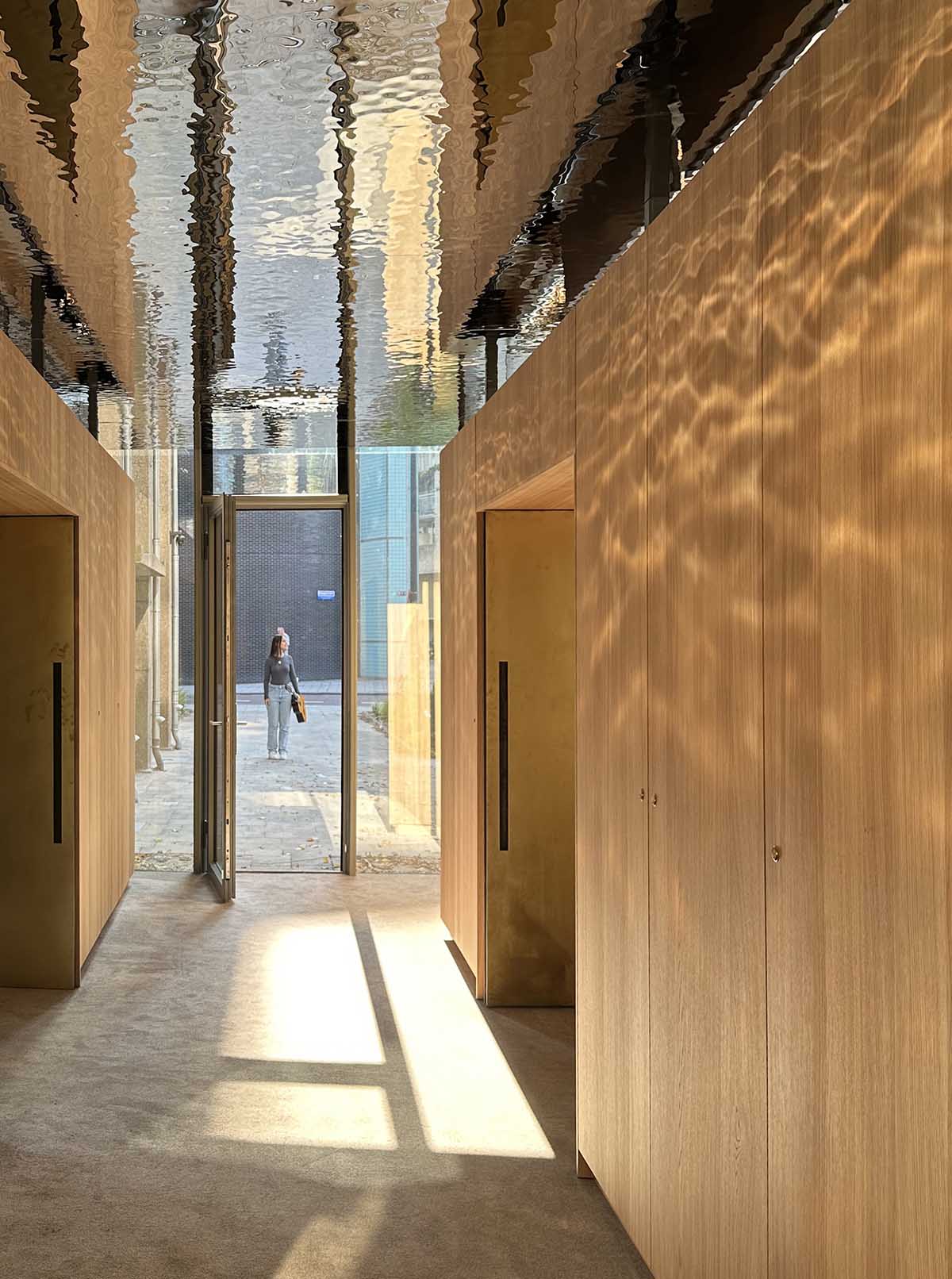
Undulating ceiling inspired by water reflections
The church structure was kept secret from the public for many years. With pride, Powerhouse Company and Droom en Daad present Muziekwerf as a hub of culture for the youth of Rotterdam.
This metamorphosis shows how tradition and modern design can work together to inspire the next generation of musicians.
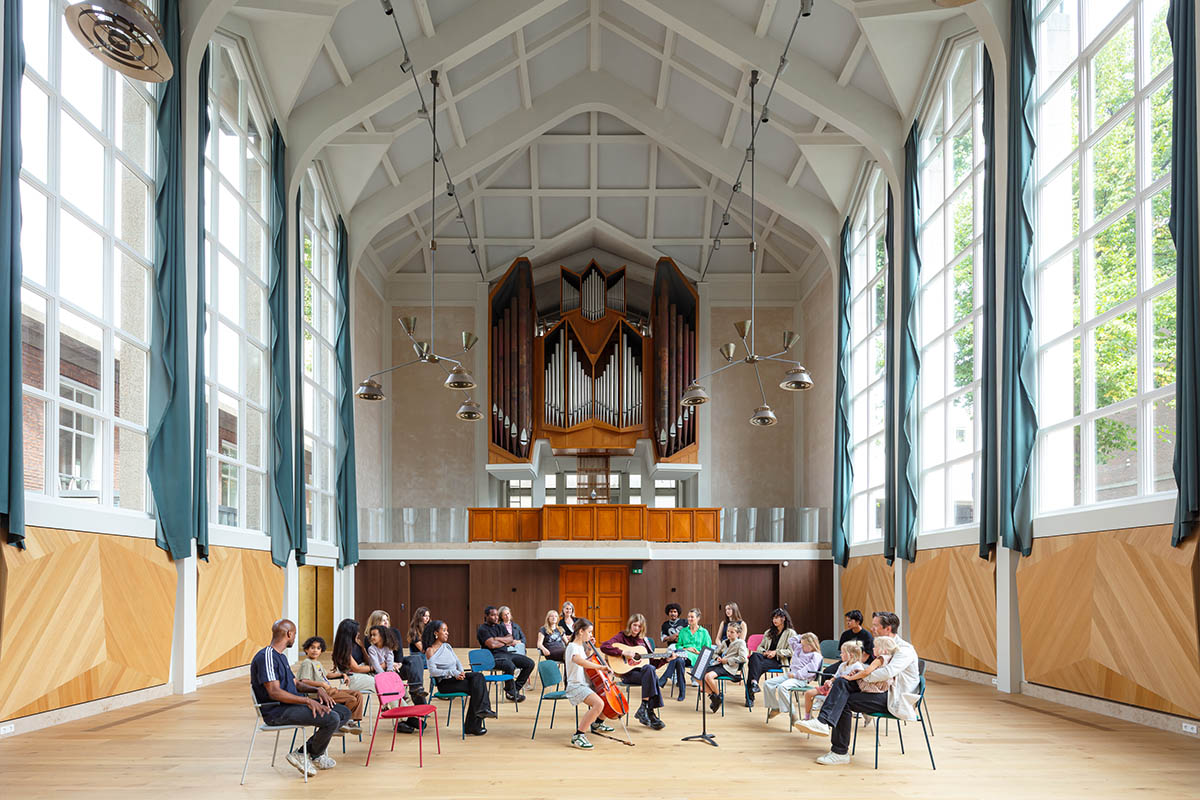
Expressive elements retained
"We're proud that Muziekwerf provides young musicians with an inspiring space to develop their talents. Together with Powerhouse Company, we succeeded in preserving the building's heritage and creating a place where creativity and diversity flourish," said Roswitha Abraham, Director Muziekwerf, Stichting Droom en Daad.
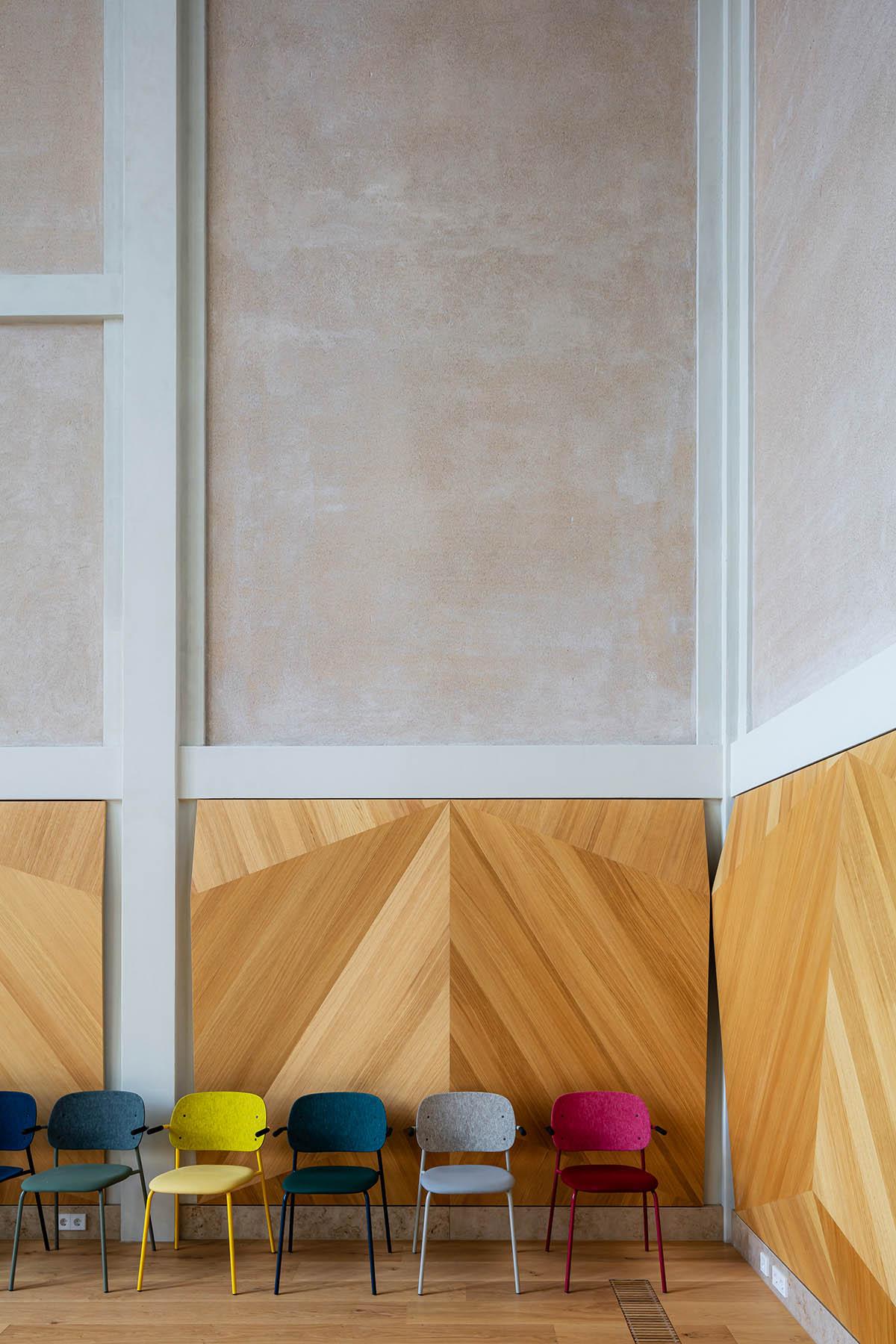
Wooden 3D wall-panels for acoustics
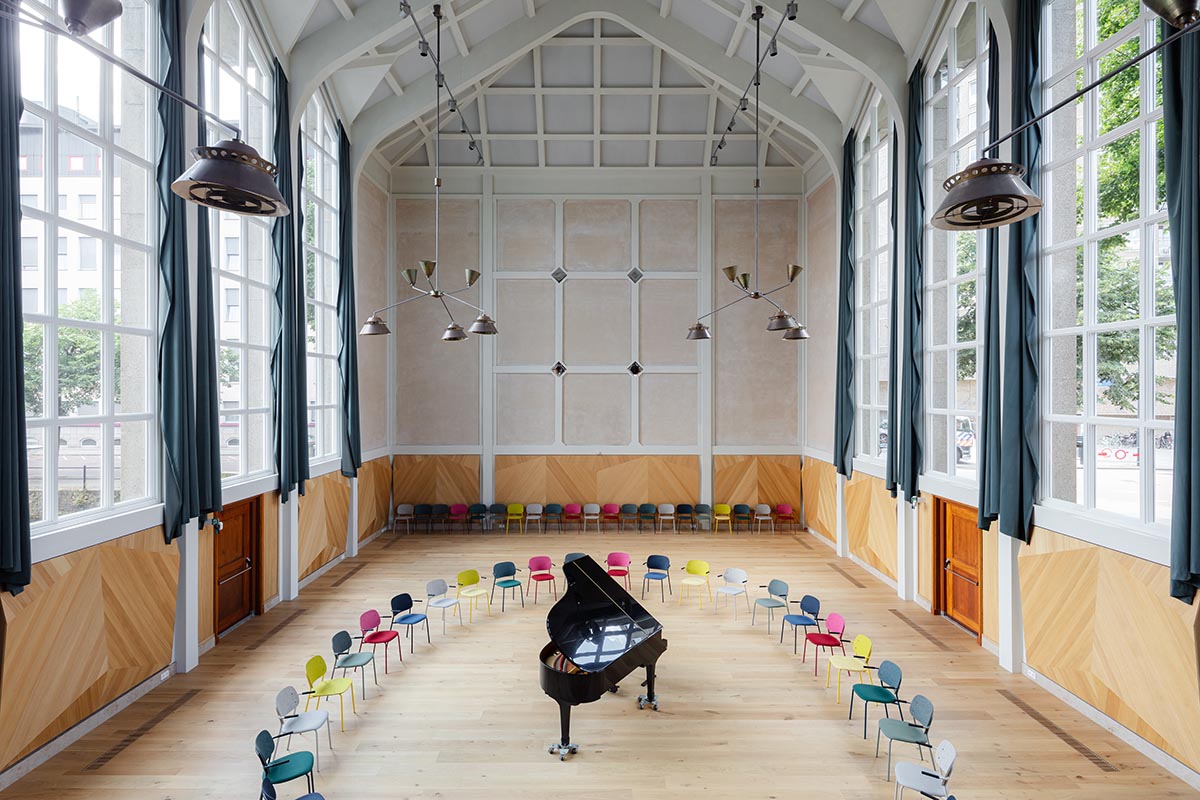
21x13 Former church hall
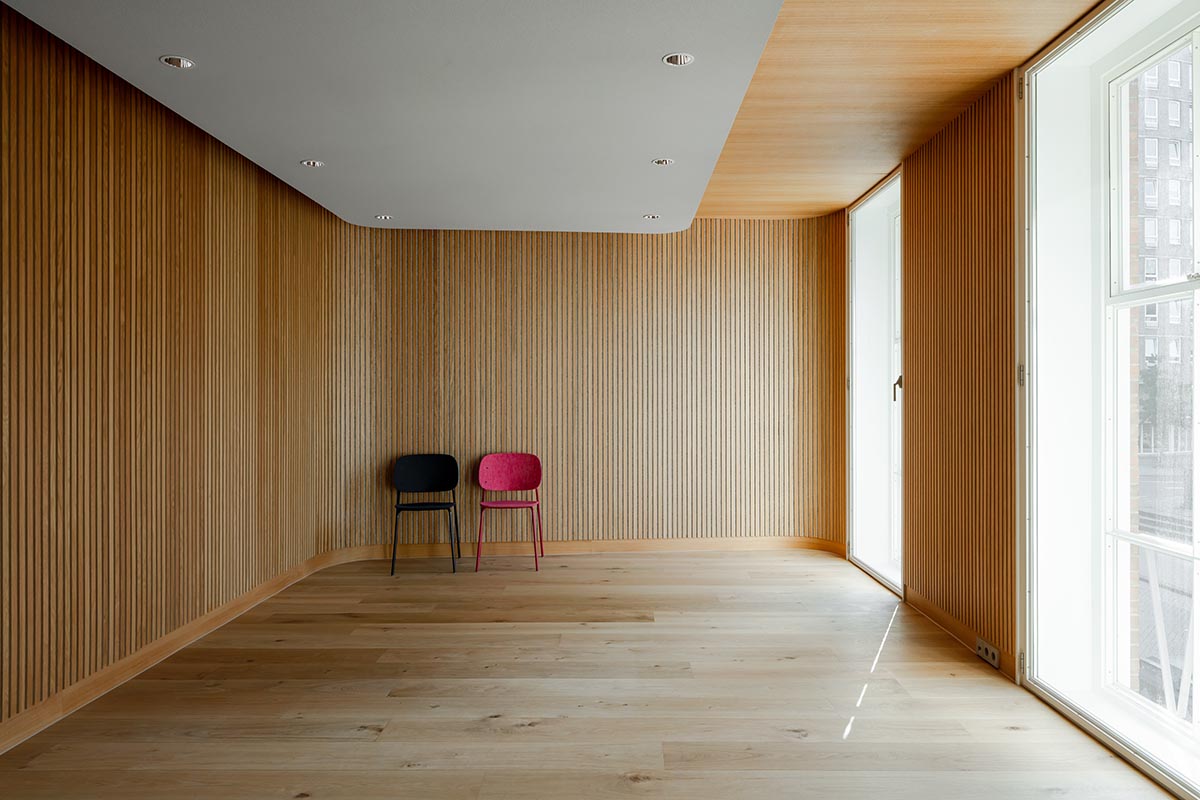
Inside a music room
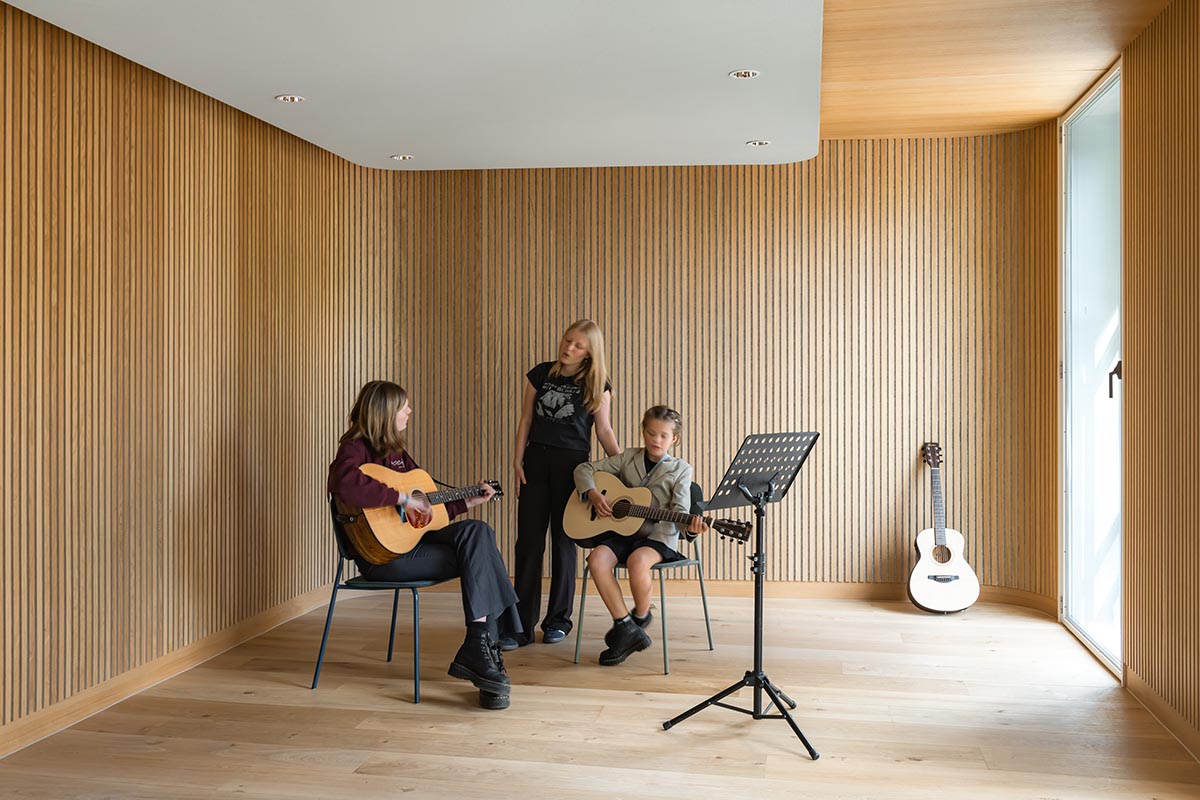
Advanced acoustic solutions

Lowered ceiling with grooved plate
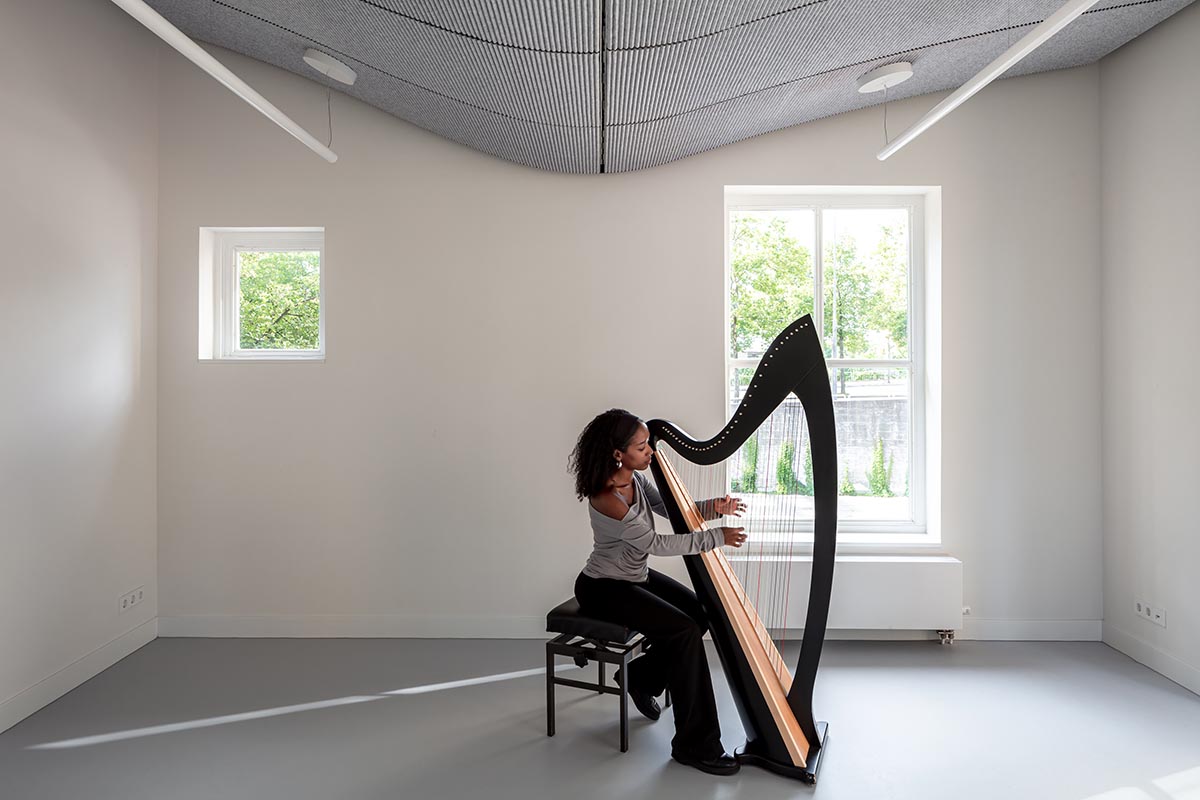
Grooved plate for acoustics and concealing concrete truss
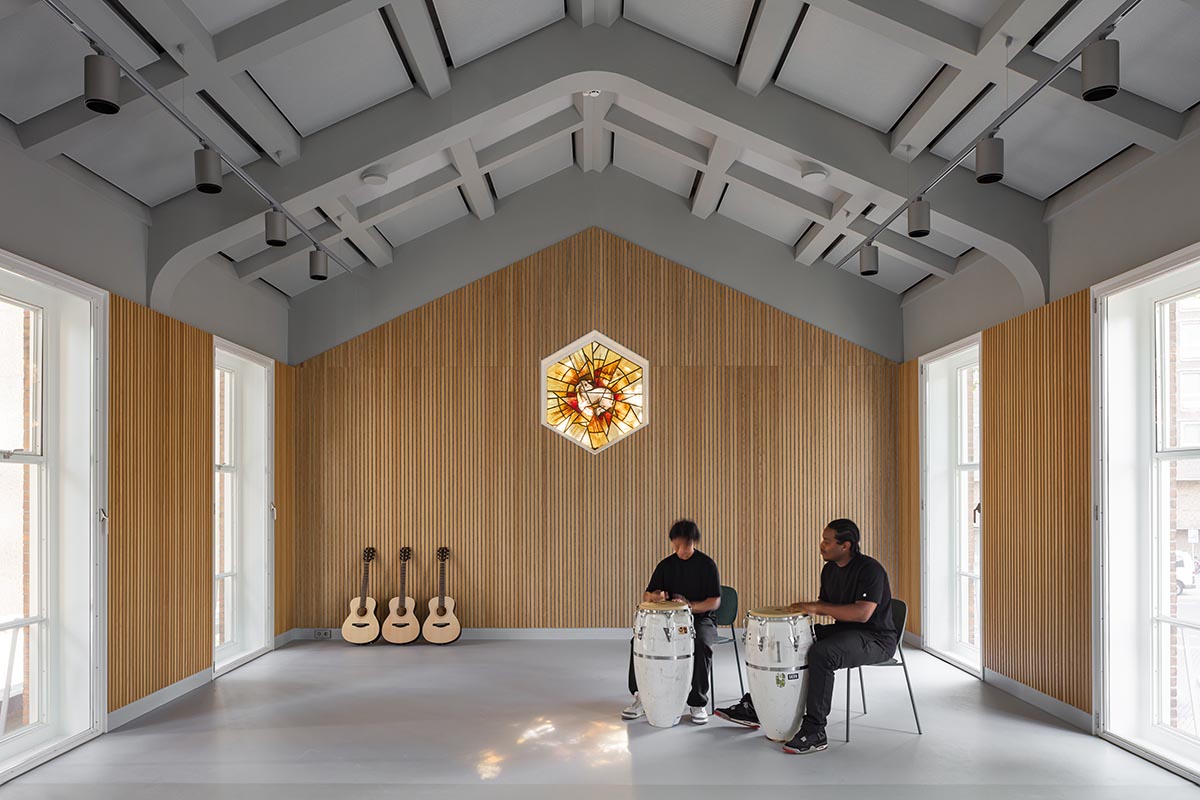
Highlighting concrete truss
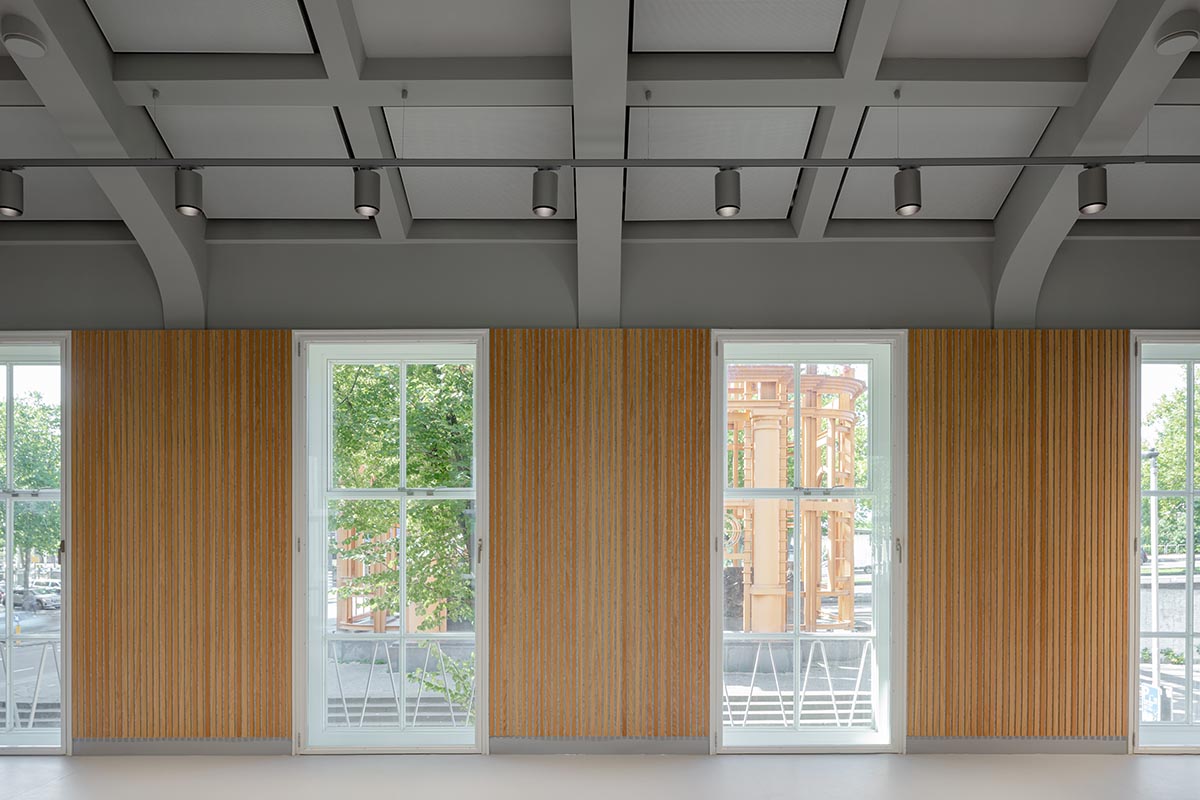
Modern amenities

Historical essence preserved

Seamless connection
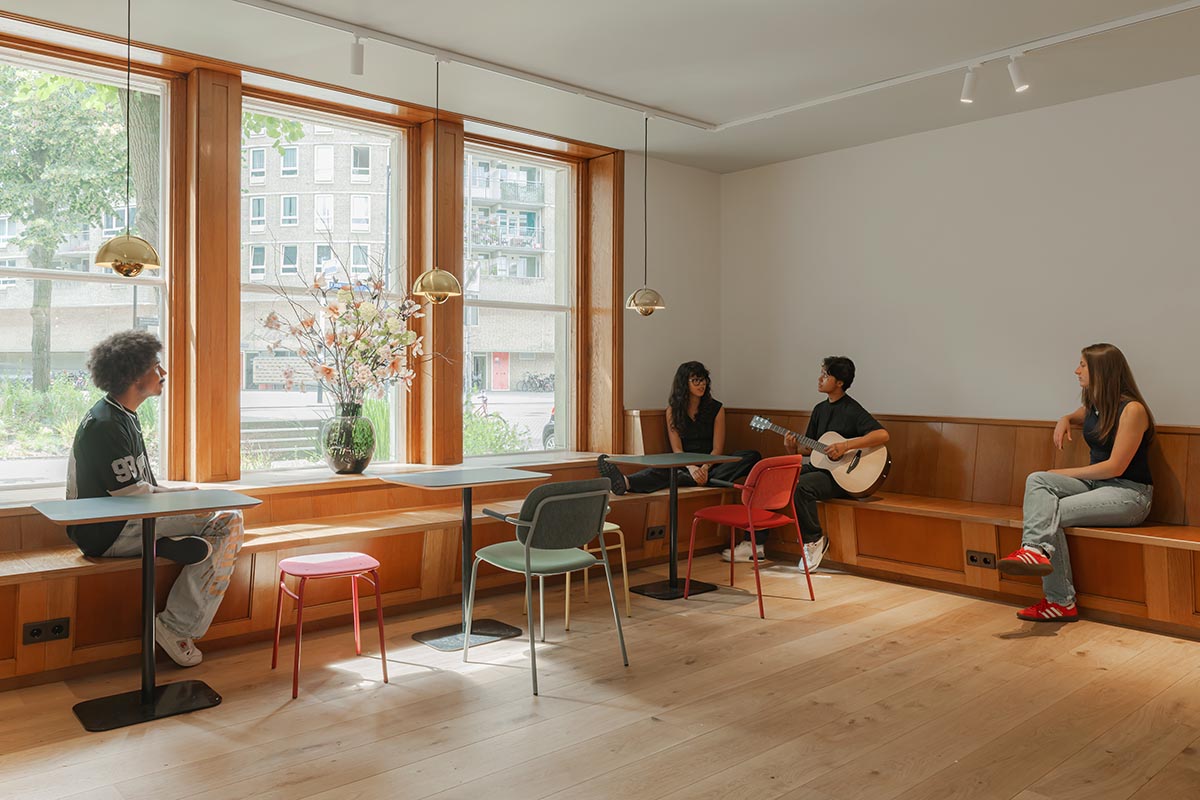
Church pews transformed into seating and paneling
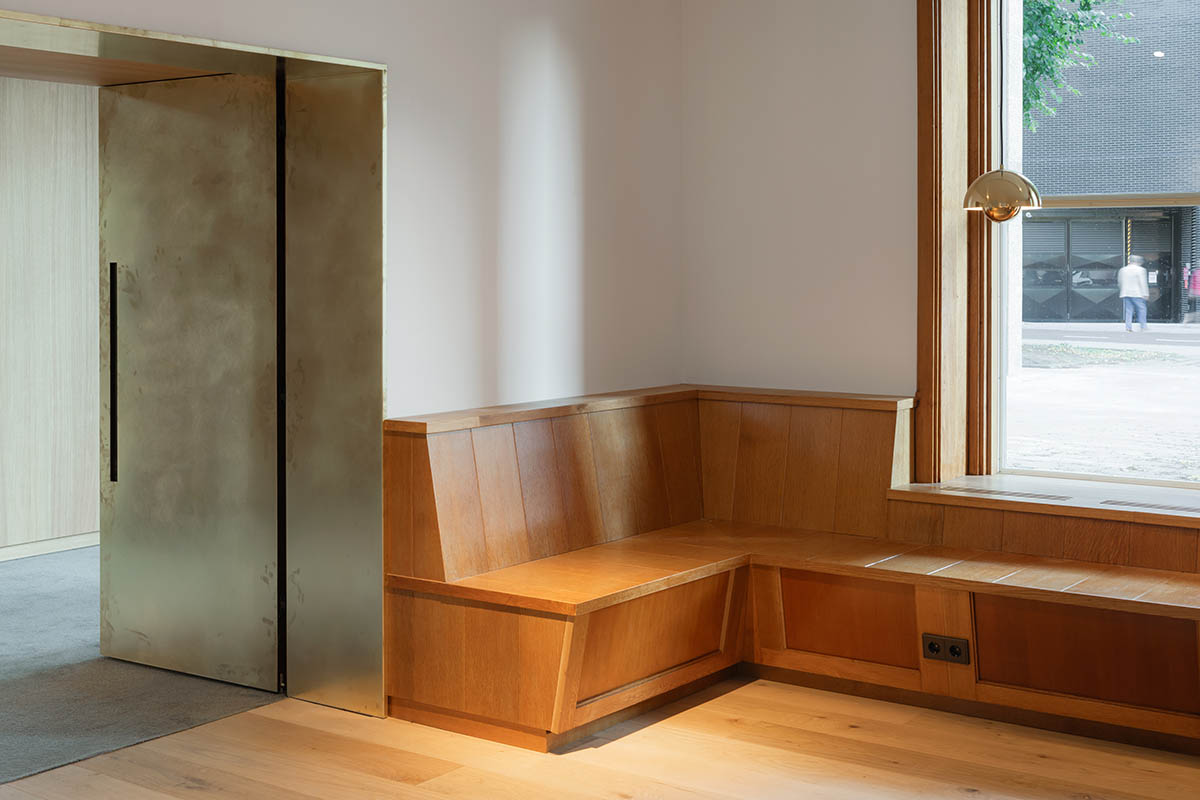
Wood and brass details
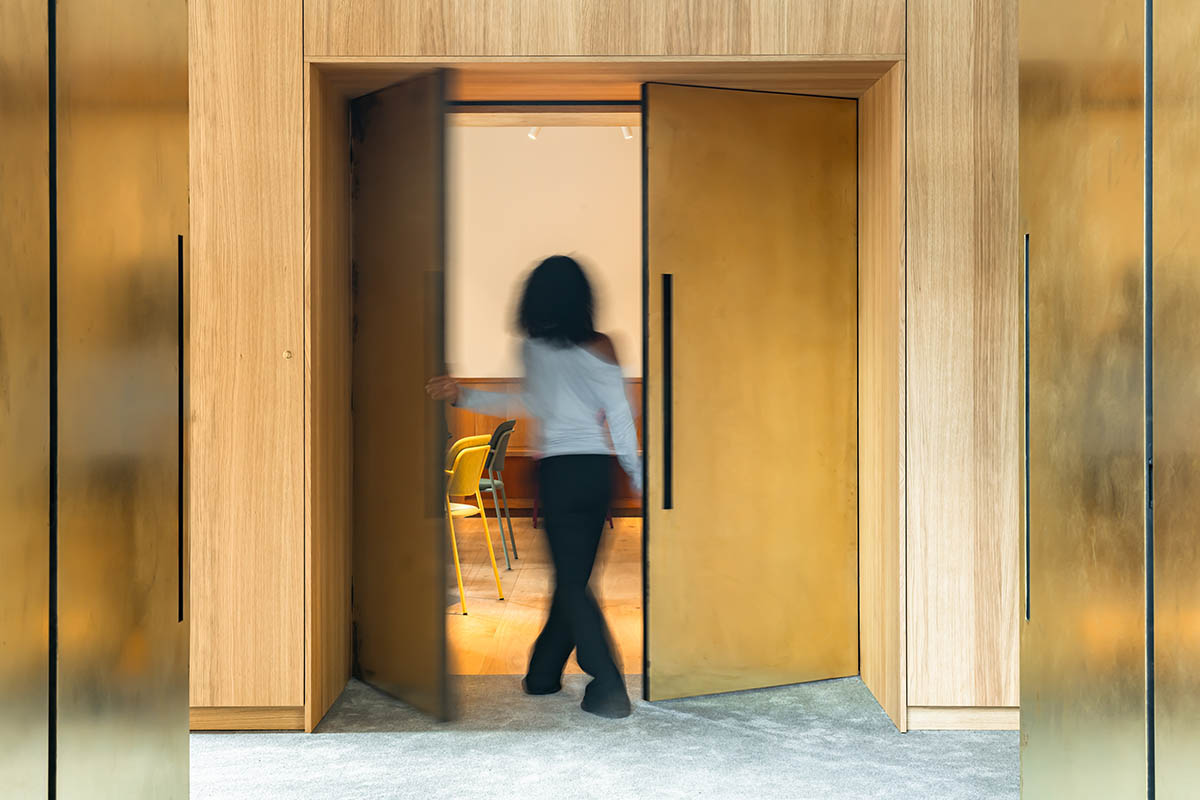
Wood and brass details
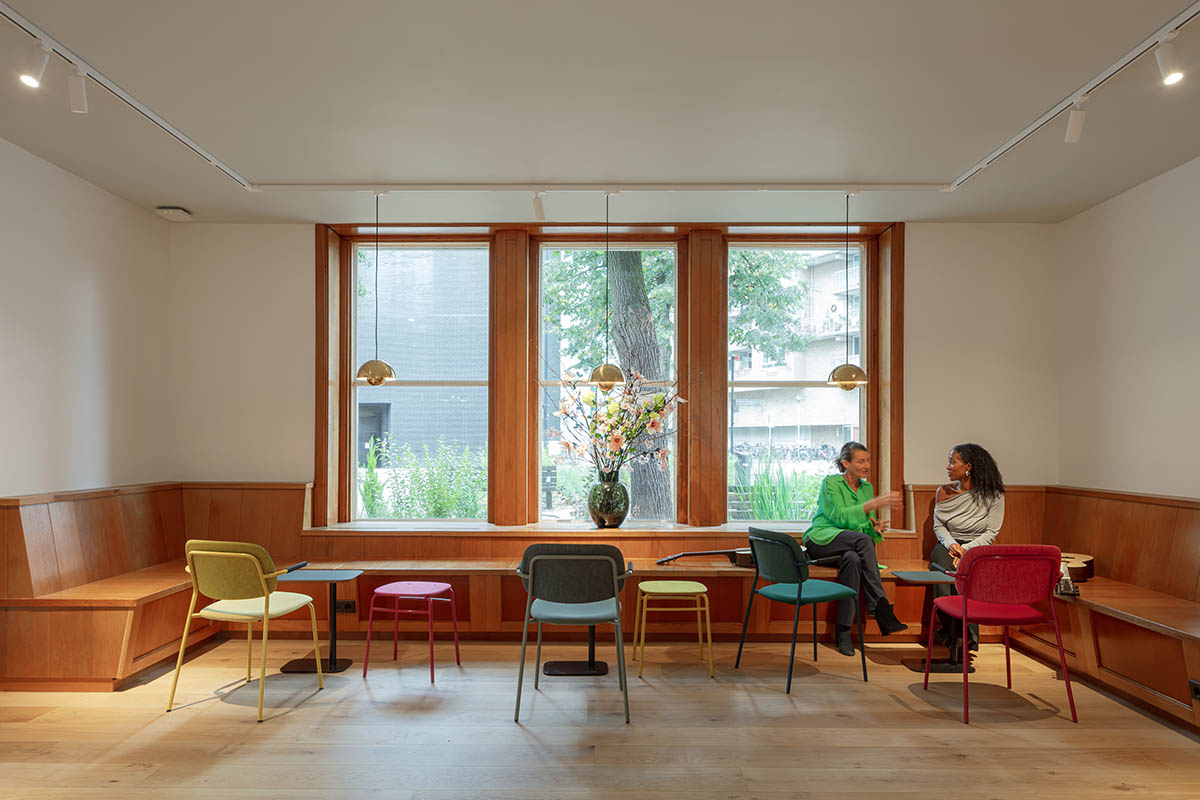
Window frames restored

Foyer leading to the office and music studios
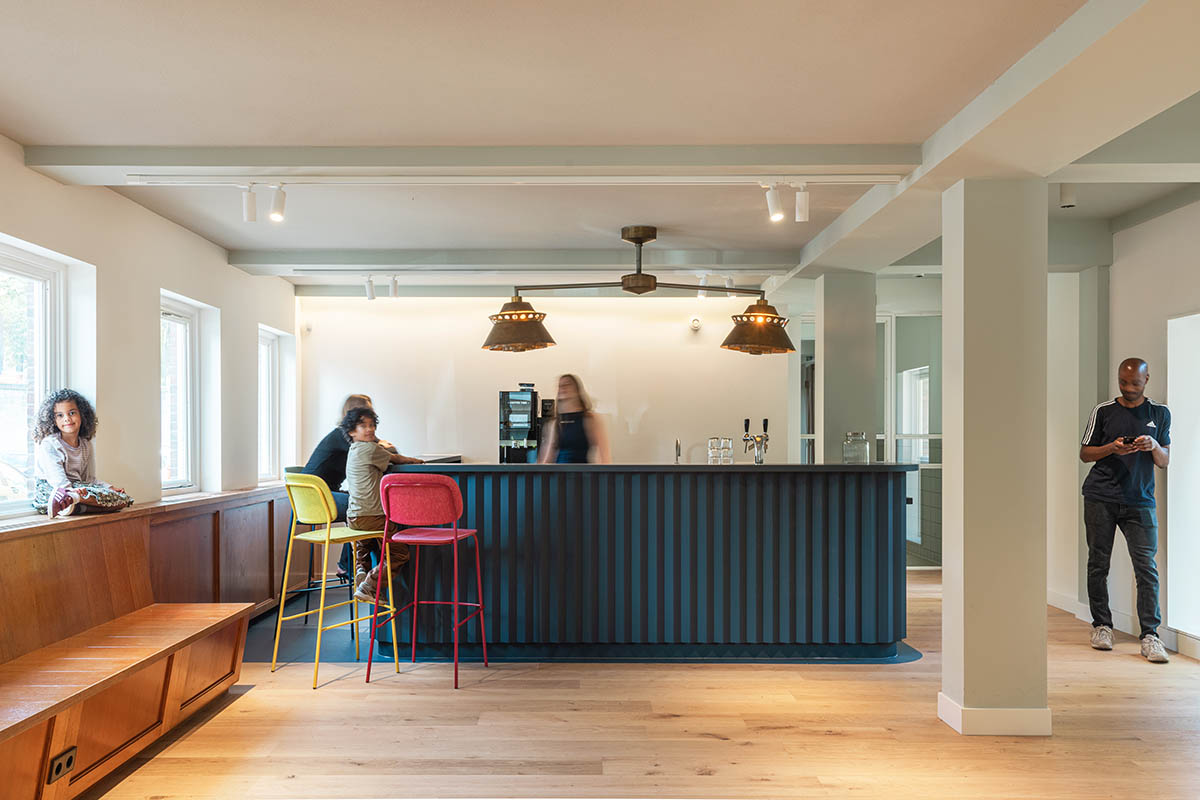
Foyer including a bar
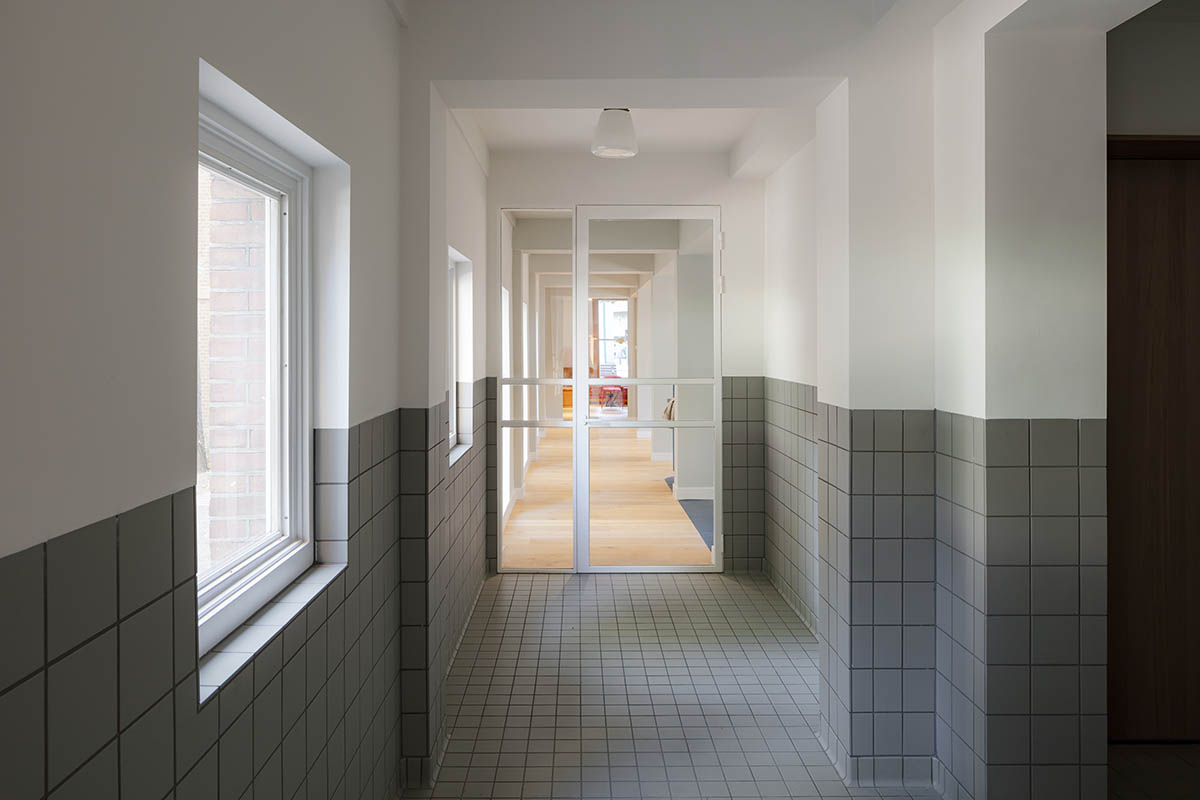
Original tiling preserved and restored
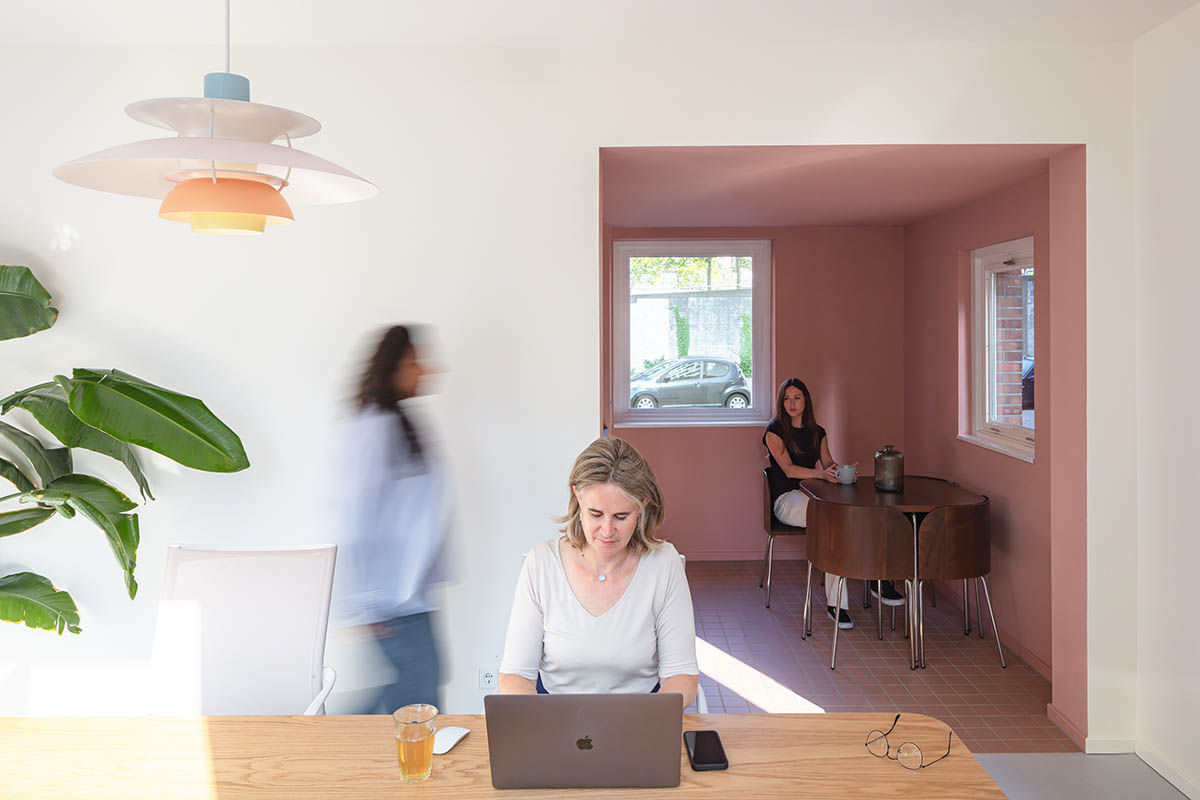
Inside the office space
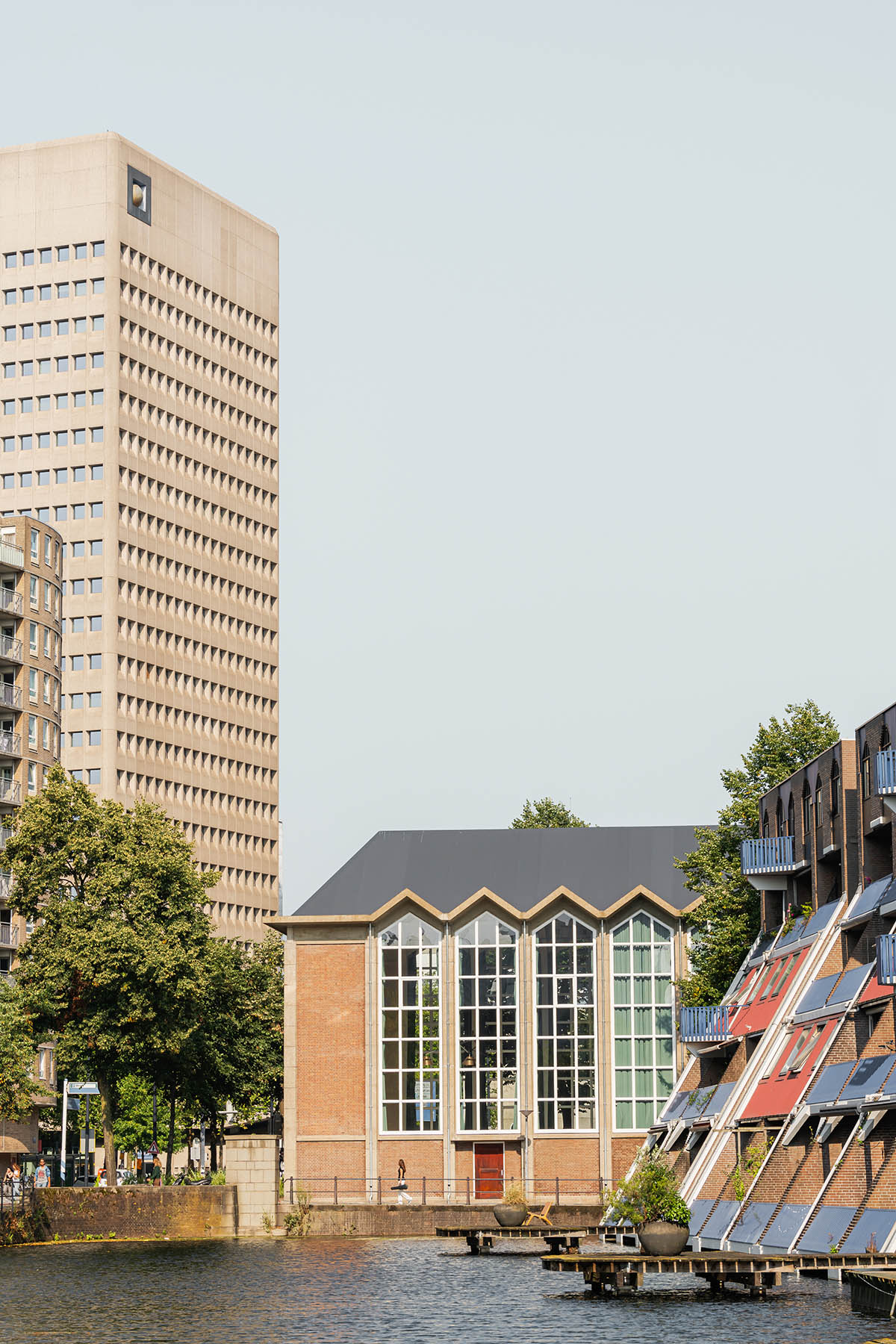
Nestled amidst tall buildings

Ground floor plan
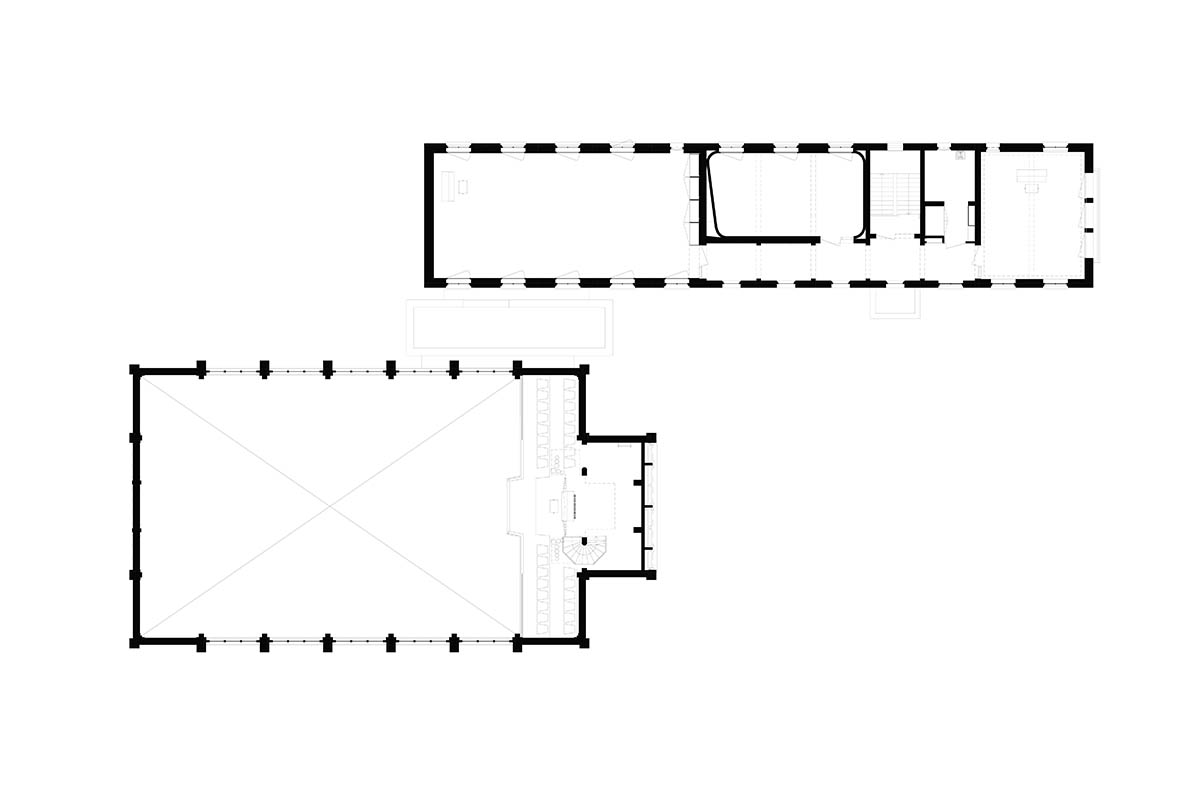
First floor plan
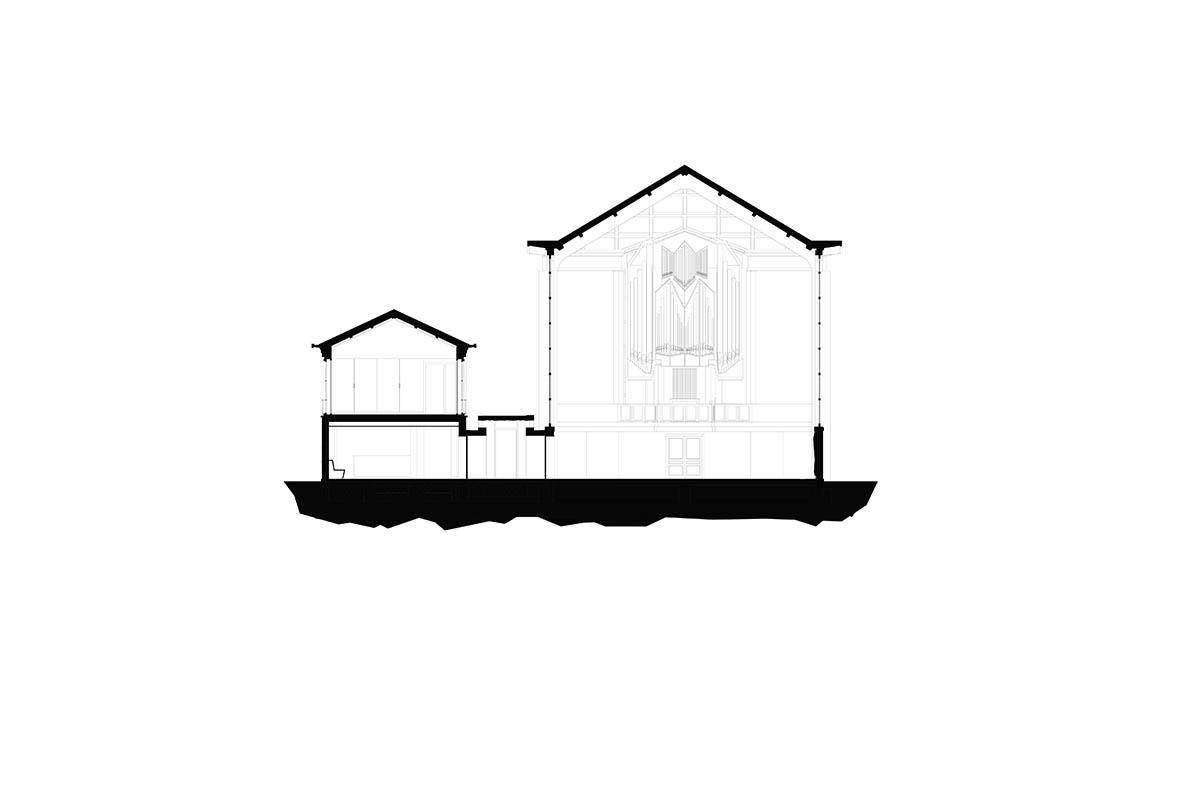
Section
Powerhouse Company first revealed design for Muziekwerf in 2023. The firm also won a competition to design an urban ensemble in Amsterdam, the Netherlands. In addition, the studio converted a brutalist classic bunker into a "friendly giant" residential tower in Eindhoven.
Project facts
Project name: Muziekwerf
Architect: Powerhouse Company
Location: Rotterdam, the Netherlands
Client: Droom en Daad
Time Span: 2021 - 2024
Size: 930m2
Design team: Nanne de Ru (Partner in Charge), Janneke van der Velden, Franca Houg, Maxime Meessen, Dion van Dartel, Mitja Kuret, Iván Guerrero, Xavier Silva, Eleni Antoniadou, Daphne Delissen, Justyna Kruk, Nick Huizenga, Antonia Pohankova, Romano van den Dool, Erwin van Strien
Contractor: Nico de Bont
Structural engineer: BREED Integrated Design
Climate and Building physics: Wolf Dikken adviseurs
Fire safety and Electrical engineering: Royal HaskoningDHV
Building management: 4Building
Cost consultant: SkaaL
Light design: Beersnielsen
Sound and vibration insulation: Delta-L
The top image © Main music hall.
All images © Sebastian van Damme, Rotterdam City Archive.
All drawings © Powerhouse Company.
> via Powerhouse Company
music hall music hub Powerhouse Company renovation Rotterdam
